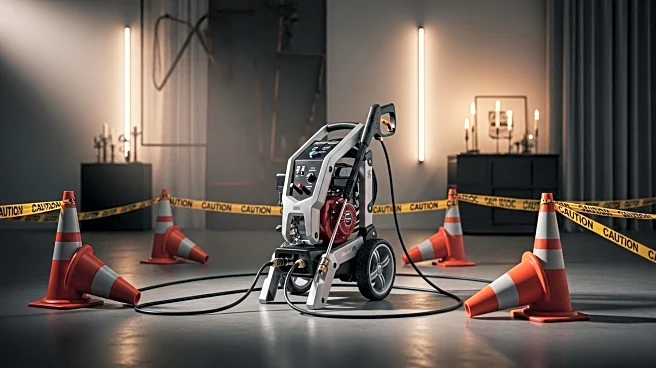What's Happening?
The Consumer Product Safety Commission has announced a recall of approximately 780,000 Ryobi pressure washers sold in the United States and Canada. The recall is due to a serious safety hazard where the pressure washer's capacitor can overheat and burst, potentially causing parts to be forcefully ejected and posing a risk of injury to users and bystanders. Ryobi has received 135 reports of overheating capacitors, including 41 explosions, resulting in 32 injuries. The affected models, RY142300 and RY142711VNM, were sold between July 2017 and June 2024 at Home Depot and Direct Tools Factory Outlet. Consumers are advised to stop using the pressure washers immediately and visit Ryobi's recall website to verify if their model is affected. A free replacement capacitor will be provided, with no proof of purchase required.
Why It's Important?
This recall highlights significant safety concerns for consumers using Ryobi pressure washers, emphasizing the importance of product safety and regulatory oversight. The potential for serious injury underscores the need for manufacturers to ensure their products meet safety standards. The recall affects a large number of units, indicating widespread use and potential risk. It also serves as a reminder for consumers to stay informed about product recalls and safety notices to prevent accidents. The incident may impact Ryobi's reputation and consumer trust, prompting the company to address safety issues proactively.
What's Next?
Consumers who own the affected Ryobi pressure washers should immediately cease usage and follow the instructions provided on Ryobi's recall website to receive a replacement capacitor. Ryobi will need to manage the recall process efficiently to mitigate further risks and restore consumer confidence. The Consumer Product Safety Commission may continue to monitor the situation and ensure compliance with safety standards. This recall could lead to increased scrutiny of similar products in the market, prompting other manufacturers to review their safety protocols.









